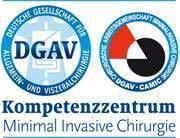Adhesions of the abdominal cavity mainly occur after surgical interventions, especially abdominal ones. Adhesions are less likely to form after laparoscopic operations. Intestinal adhesions are the main cause of small bowel obstruction. Intestinal adhesive disease often requires surgical treatment. This is a serious medical condition with a mortality rate of up to 15-20%.
Content
- Causes
- Adhesion severity scoring system
- Symptoms
- Diagnostics
- Treatment principles
- Surgery for adhesive disease treatment
- Where to undergo treatment
Causes
In 75% of cases, the cause of adhesions is a surgical intervention. Other causes may include inflammatory processes, abdominal trauma, congenital anomalies. Not all people develop adhesions even after major surgery. For them to appear, there must be a genetic predisposition.
Adhesion severity scoring system
Below is adhesion severity grading:
- Grade 1 – the process is limited to the area of the postoperative scar.
- Grade 2 – single adhesions develop in other areas of the abdominal cavity.
- Grade 3 – adhesions occupy a third or more of the entire abdominal cavity.
- Grade 4 – adhesions occupy two thirds of the abdominal cavity.
Symptoms
Symptoms may manifest themselves suddenly or progress gradually. The main manifestations are as follows:
- High body temperature.
- Nausea.
- Vomiting.
- Abdominal pain.
- Bloating.
- Unstable stool.
- Vomiting that occurs during exercise.
Diagnostics
The standard diagnostic method is radiography, but it is informative only 50% of the time.
In recent years, ultrasound has been increasingly used. This diagnostic test is inexpensive, fast, painless, and does not give radiation exposure. It can be repeated many times to assess the state of the bowel over time.
Doctors abroad often use computed tomography. This is the most accurate diagnostic method. It is more expensive and is associated with a higher radiation load on the body than X-ray scanning. Therefore, a CT scan is not performed for all patients with intestinal obstruction and adhesions. It can be used in uncertain diagnostic situations. The main role of the CT scan is to determine if a patient needs an operation. The diagnostic method provides reliable information about the origin of intestinal obstruction. The doctor can exclude cases when this pathology is not associated with adhesive disease, and also determine whether the intestinal obstruction is complete.
The diagnostics can be made using a water-soluble contrast agent taken orally. Barium sulfate contrast agent, which is standard for bowel examination, cannot be used in such cases. If the bowel is perforated, it can enter the abdominal cavity and cause complications.
MRI can rarely be used. The technique can be used instead of CT scanning if there are contraindications for this diagnostic option or iodine-containing contrast media (it is administered intravenously).
Treatment principles
In about 70% of cases, improvement can be achieved with the help of conservative therapy. Doctors use medications such as enzymes, glucocorticoids, antispasmodics, anticholinesterase drugs, fibrinolytics, and anticoagulants.
In 30% of cases, surgical treatment of chronic adhesive disease is required. The indications for surgery are as follows:
- Conservative treatment of adhesions of the abdominal cavity does not give any effect.
- Deteriorated patient's condition.
- Development of acute intestinal obstruction.
Surgery for adhesive disease treatment
To provide treatment of adhesions of the abdominal cavity, the following surgical interventions can be performed:
Laparoscopic surgical adhesiolysis is the main surgical procedure in Europe. Doctors perform dissection and separation of adhesions to restore the patency of the small intestine. Studies have shown that laparoscopy is as effective as open surgery. This allows for achieving a number of advantages:
- Lower risk of complications.
- Less tauma.
- Lower risk of new adhesion formation.
- Speedy recovery of patients after surgery.
Bowel resection is performed in case of its death. With intestinal obstruction, its blood supply is disrupted. As a result, the intestinal wall can be irreversibly damaged. The doctor removes part of the small bowel and makes an anastomosis – connects the ends of the bowel to restore the continuity of the gastrointestinal tract.
Enteroplication is the suture of the intestinal mesentery in order to restrict mobility. It is used to prevent the repeated development of adhesive obstruction of the small intestine.
lleotransverse anastomosis is the formation of a bypass for moving the food bolus from different parts of the small intestine into the transverse colon (part of the large intestine).
Where to undergo treatment
If you develop intestinal adhesive disease, you can go abroad for treatment. The Booking Health specialists will select the best hospitals for the treatment of adhesive disease abroad for you. We will take care of the arrangement of your urgent treatment and emergency surgery in one of the developed countries.
There are several reasons for you to undergo treatment of abdominal adhesions abroad:
- In most cases, surgical adhesiolysis is performed using laparoscopic techniques rather than open ones.
- Preference is always given to sparing operations without removing a part of the bowel.
- Minimum probability of switching from laparoscopy to open surgery.
- Possibility of minimally invasive treatment of adhesions of any localization: adhesions of the abdominal cavity, adhesion of the small pelvis.
- Doctors use anti-adhesion barrier agents such as Seprafilm bioresorbable membrane. They separate the wound surfaces for the time required for the regeneration of the peritoneum.
- Low risk of complications.
- Successful performance of even the most complex surgical procedures.
- High-quality postoperative care and complete recovery.
Please leave your request on the Booking Health website. Our specialist will contact you within just a few hours. If you book a medical care program through our service, the cost of treatment will be lower due to the lack of additional coefficients for foreign patients. You can compare prices in different hospitals in order to book your treatment at the best price.
Authors: Dr. Vadim Zhiliuk, Dr. Sergey Pashchenko




















